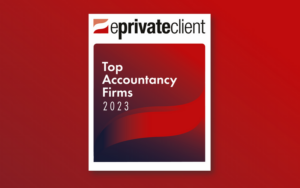Employment-related securities – the impact of the Vermilion Supreme Court case
Susie Mullin looks at the ramifications following the conclusion of the Vermilion Holdings case and its impact where securities are being issued to individuals where there may be an employment connection
Following the conclusion of the Vermilion Holdings case Susie Mullin looks at its impact where securities are being issued to individuals where there may be an employment connection
Why is it relevant?
The tax legislation, largely through the Income Tax (Earnings and Pensions) Act 2003 (ITEPA 2003), is designed to ensure that employees are subject to Income Tax on payments, in cash or in kind, received in connection with their employment.
Part 7, ITEPA 2003, deals with shares and securities acquired in connection with employment. Employment for these purposes includes directorships and so this legislation applies to all directors, including non-executive directors.
Since its introduction in 2003, there has been debate about exactly when shares or securities will be employment-related securities for these purposes. In 2023, R&C Commers v Vermilion Holdings Limited (Scotland) 2023 BTC 26 was heard in the Supreme Court and considered whether securities options were granted by reason of the taxpayer’s employment. The same definition applies to securities, as securities options, and hence this case will apply equally to securities (including shares).
The starting point is 471(1) ITEPA 2003, which applies to securities options “acquired by a person where the right or opportunity to acquire the securities option is available by reason of an employment of that person or any other person”. This wording clearly implies that there must be a causal connection between the acquisition of the securities option and an employment.
However, the deeming provision in s471(3) ITEPA 2003, provides that “a right or opportunity to acquire a securities option made available by a person’s employer, or a person connected with a person’s employer, is to be regarded… as available by reason of an employment of that person” unless certain conditions are met (essentially that the opportunity is in connection with domestic, family, or personal relationships).
The Supreme Court’s decision concluded that:
- It is only necessary to consider s471(1) – i.e. whether there is a causal connection – where the deeming provision in s471(3) does not apply
- S471(3) provides a bright line rule: “if a person’s employer (or a person connected to that person’s employer) provides the employee the right or opportunity to acquire a securities option, that right or opportunity is conclusively treated as having been made available by reason of the employment of that person (unless subsections (a) and (b) apply”
This removes any ambiguity where an individual acquires shares or securities in an entity in which he/she is an employee or that is connected to his/her employer.
Who does it affect?
Any entity issuing shares to an individual will need to consider whether there is a connected employment (even if there is no causal connection). It will then be necessary to consider whether it is appropriate to make s431 elections (which can prevent Income Tax charges arising post-acquisition) and whether unrestricted market value is being paid.
What do you need to know?
- Shares or securities will always be employment-related securities where the opportunity to acquire shares is made available by a person’s employer or a person connected with the individual’s employer. Hence, comfort that the legislation does not apply cannot be taken from the fact there is no causal connection or that other, non-employees, acquire the same securities on the same terms.
- Where partners in private equity structures are acquiring shares or securities, the position should be carefully considered as directorships of portfolio companies may result in carry and co-investment being brought into the employment-related securities legislation.
- Equally, where individuals choose to make an investment in their employer or a connected entity (even where those investments are available to non-employees), thought should be given to the employment-related securities legislation. This legislation can result in tax charges arising on conversion or disposal and so even if no upfront tax charges arise (broadly on the basis that unrestricted market value is paid), unexpected tax charges may occur on a later event.
What should you do next?
Get in touch. The team at Blick Rothenberg can help you fully understand the employment-related securities legislation and how it may be applicable to your structure. We can help ensure that you structure the acquisition of shares and securities and holding of shares by employees and partners in a way that is compliant with the employment-related securities legislation thus minimising risk of upfront and later tax charges. We can also help with the required HMRC elections and filings.
Contact us
If you would like to discuss the above matter, or to confirm how this impacts your company, please get in touch with your usual Blick Rothenberg contact, or Susie Mullin using the form below.
Contact Ele















